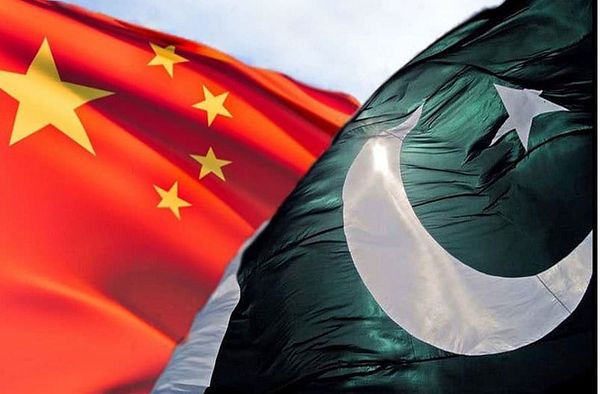China has received a lot of backlash from the west on its rapid expansion and has been alleged to breach the countries’ security paradigms under its grand economic model of BRI (Belt Road Initiative), and, due to its communist system of governance, is seen as promoting non-democratic values.
Unlike other major powers, China is mainly focused on lending economic and infrastructural assistance to the countries under BRI and avoids interfering in their internal affairs. Under the BRI, China has strengthened its influence in the region, and that is somewhat unsettling to the west.
China’s candidness towards Pakistan, however, goes back to the 1950s. Pakistan was one of the first countries to recognize China. The two countries established diplomatic relations on 21 May 1951. This relationship has built on the strength of its successive achievements and has become formidable with each passing day and year. The relationship between the two countries has flourished even more since the initiation of the China-Pakistan Economic Corridor (CPEC). It has been labeled a major pilot project of the BRI and aims to “enhance connectivity and integration of development strategies of China and Pakistan.”
Pakistan and China have had economic relations for decades, and the idea of an economic corridor between the two countries had been under consideration for the last ten years. However, it was only in May 2013 that the project was officially launched during Premier Li Keqiang’s visit to Pakistan. The Memorandum of Understanding (MoU) with the fine details of CPEC projects was eventually signed during President Xi Jinping’s visit to Pakistan in 2015.
CPEC includes financing and cooperation between the two countries in energy, infrastructure, trade, and certain other sectors. The biggest chunk of CPEC financing is related to the energy sector, with projects worth more than USD 30 billion. CPEC has a massive impact on infrastructure also. Pakistan currently ranks 121 out of 160 countries on the infrastructure score developed by the World Bank as part of their Logistics Performance Index (LPI). CPEC invests heavily in this sector and hence has the potential to facilitate supply chains of businesses across the country.
Pakistan, being surrounded by a hostile neighbor and having an unstable economy, needs an ally as strong as China. It has often been implicitly asked by the western countries to narrow down its engagement with China or pick a side.
Besides the CPEC, China stood with Pakistan in the toughest of times. The Chinese assistance to Pakistan in catastrophes such as the COVID-19 pandemic is one of the most exemplary instances of China’s unflinching and unconditional support for the neighboring country.
In the wake of recent western criticism of Chinese expansion, Senator, Mushahid Hussain Syed stated at the 7th Pak-China Media Forum, “We reject the western claim of a looming cold war. The BRI (Belt Road Initiative) is to bring people together, not aimed against anybody.” He also said that the biggest challenge currently being faced by the CPEC is fake news and disinformation, so journalists and media platforms of both countries should unite to promote BRI and report the facts.
On the same occasion, Pang Chunxue, Chinese chargé d’affaires said, “Certain elements want to malign Pak-China friendship through propaganda and fake news on BRI and CPEC. Full mobilization of resources is required. The media from both sides should focus on the progress of projects, professional growth of employees – to showcase what CPEC has brought to Pakistan”.
She further said that some western countries continue to spread rumors about China, so both countries should take advantage of their massive populations and media to mitigate this challenge. “I hope that media from two countries adhere to objectivity and show different aspects of this win-win cooperation”, she concluded.
No doubt, the Chinese rise is transforming the world order, but the peculiarity is that China is in Asia. On the Chinese economic rise, Steve Tsang, Director of China Institute, SOAS, says, “After Xi Jinping became the leader of China, what we see is an assertive foreign policy: China now requests and requires the rest of the world to pay China due respect.” Elaborating on the same point, Victor Gao, VP, Center for China and Globalization (Beijing), says, “China does not want to challenge the international order today but wants to have a better, larger say in the international order, which is all legitimate, not a revolutionary means to overthrow the international order.”
As far as Pakistan is concerned, the Chinese rise favors the region. In a stroke of strategic luck, Pakistan has a neighboring country that is economically and industrially affluent.
A recent development, however, has occurred vis-à-vis CPEC. The International Monetary Fund (IMF) has asked Pakistan’s government to renegotiate the China-Pakistan Economic Corridor (CPEC) energy deals before making payments of around Rs300 billion to the Chinese power plants, putting Islamabad in a tight spot.
The prospects for Pakistan seem positive, given that the western powers do not steamroller it to display a visible alignment.




